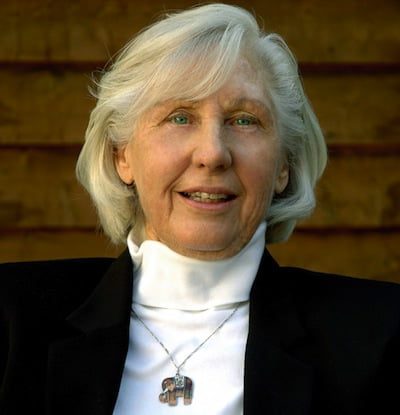Recent research suggests that this country is facing a crisis in retirement security. We’ve been told this is because as baby boomers reach retirement age, there won’t be enough young workers to pay for older retirees.
That may be true of Social Security, but it’s not the whole story.
Corporate pensions, originally designed to attract talented employees, have been replaced by 401(K) accounts, where workers can invest a limited amount of their earnings to be matched by employers’ contributions.
Sounds good, and for a long time it was. But in the low-interest environment of the past five years, savings simply haven’t grown. And savers, who counted on conservative income earnings of five percent interest, now are lucky to earn .05 percent.
Those who chose stock accounts for their 401(K)s, and lost most of their investments in 2008, realized too late that the risk wasn’t worth the opportunity for greater yields. The risk-averse are now leery of stock market volatility and haven’t benefited from soaring stock prices.
Conservative investors held laddered certificates of deposit paying maybe six percent. When the world’s central banks drastically cut interest rates in an effort to stop the plummeting economy, living on the interest from savings in retirement was no longer an option.
Those lucky enough to keep their jobs (with health care and 401(K) accounts) often had to work fewer hours or take pay cuts. Unfortunately, many of them were slow to change their lifestyles and instead borrowed heavily on credit cards, car loans and equity lines of credit. And some of the unlucky ones had to tap into their retirement funds when their jobs went south. And therein lies the difficulty: Too much debt offsets retirement savings.
Although our culture encourages instant gratification, the same situation is happening around the world, even in countries where the culture favors saving.
To balance budgets, Hungary, Poland and Ireland have seized or taxed retirement accounts. In Japan, economists say the government pension system, upon which 63 percent of workers rely, is in danger of going broke.
In Britain, employers are required to automatically enroll employees in a pension plan. The 2012 law requires contributions to equal 2 percent of wages, half paid by employers. This will increase to 8 percent by 2018, with employers contributing 3 percent.
In France, where government pensions have been the envy of other developed countries, reforms, though modest, have begun. The number of years a person must work to receive a full pension has been raised from 41.5 to 43. Doesn’t sound like much, but more adjustments will surely follow.
Australia, however, beat the curve; its 1993 law makes retirement saving mandatory. Employers contribute 9.25 percent of workers’ earnings to private accounts and workers can’t withdraw any money until retirement. Before passage, the law was unpopular, but six months after enactment, support grew to 85 percent as workers saw their savings pile up.
A recent study of 30 countries by the Organization for Economic Cooperation and Development (OECD) stated the average retirement age would have to reach 66 or 67 to account for projected longer life spans.
Also, birth rates are falling throughout the developed world. In China, where private investment is regulated, civil servants get generous government pensions that may grow to double the country’s GDP. Culturally, elders have relied on their children’s support, but the one-child policy (recently relaxed) works against this.
But demographics aren’t the only factor.
The OECD estimates that pension reforms enacted in the past decade will cut retirement benefits on average by 20 percent. This is bad news for those nearing retirement who were counting on Social Security and some savings to support them in their old age.
Of the 34 wealthy countries OECD studied, governments provide on average 59 percent of retiree income. In the U.S., that figure is only about 38 percent. And if the current Congress has its way, that may diminish even more.
Having retired at 65, my monthly Social Security check has increased to just above $12,000 annually, after the Medicare withdrawal. I’m grateful, as a current retiree, that further cuts probably won’t affect me. And yet, I still worry that I will outlive my savings. So every month I divert half of the government check to a savings account where interest earnings are paltry.
But saving has always made me feel good, and it just might help to keep me in gelato and cabernet and my Subaru in petrol. And both of us out of poverty.

